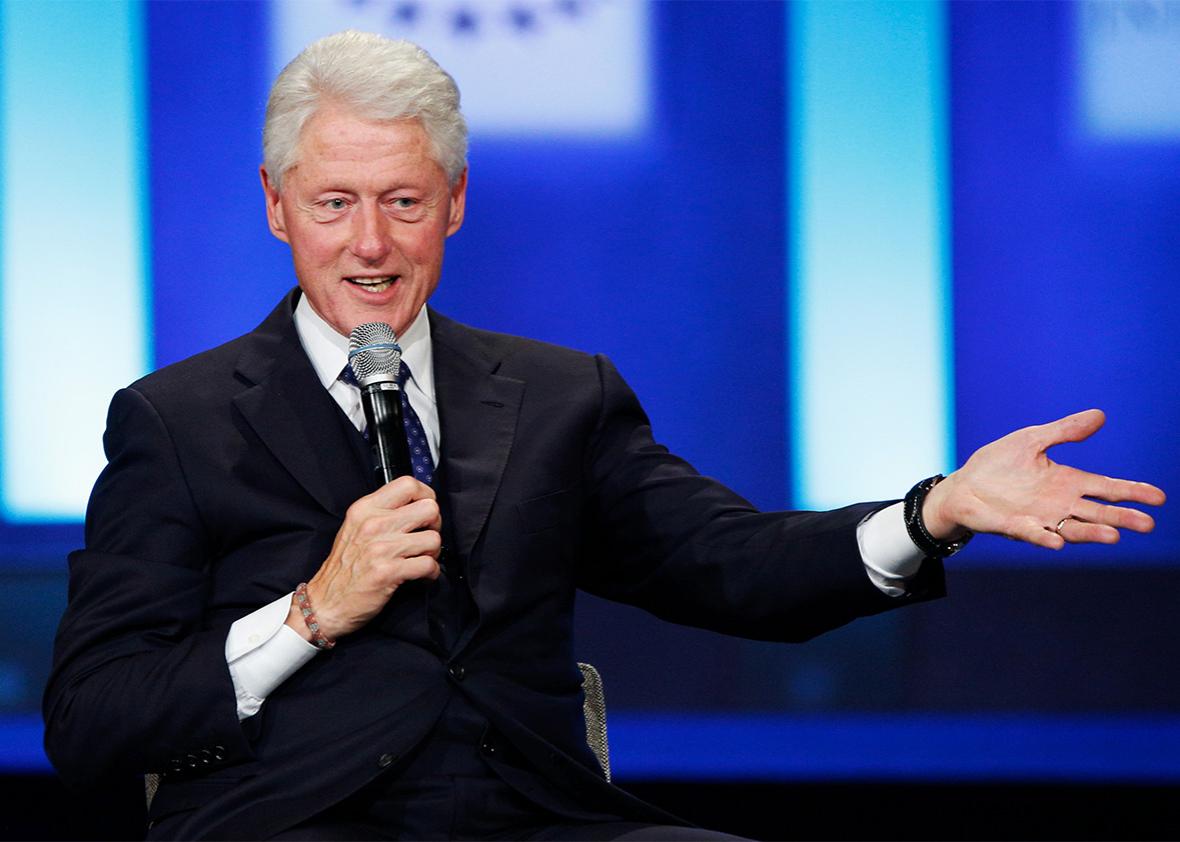Hillary Clinton is running for president, which means Bill Clinton’s sex life is relevant again. Donald Trump mentioned it last week, jabbing the candidate and the former president in a tweet marked by his unique syntax. “If Hillary thinks she can unleash her husband, with his terrible record of women abuse, while playing the women’s card on me, she’s wrong!” On Monday, citing Trump, ABC News reporter Cecilia Vega asked Bill Clinton whether his affairs were “fair game.” The ex-president was flustered.
At the Washington Post, Ruth Marcus warned Team Clinton that Bill’s past behavior was a real liability for the campaign, and writing for National Journal, Ron Fournier cites “senior Democrats” who “worry the old allegations will gain new legs.”
This worry—and Trump’s obvious bet that he can harm Hillary using Bill—might make sense if this were 2004 or even 2008. But in 2016, it’s an odd—even bad—bet. Why? Because much of the American electorate is too young to care, and even if it did, political attacks don’t work the way they once did.
This November, if projections hold true, 31 percent of all eligible voters—68 million people—will be between 18 and 35 years old. This year’s youngest voters, in other words, were born at the tail end of Bill Clinton’s second term, in 1998. At most, they might remember the 2008 election. Most likely, their earliest political memory is the re-election of Barack Obama.
At the other end, the oldest voters in this group might remember Bill Clinton—they were 10 or 11 when he was elected, and teenagers when he won re-election. The most conservative people in this cohort might respond to attacks on Clinton for his infidelity, but they are a minority. Americans who turned 18 when Bill Clinton was president are among the most liberal voters in the electorate. The only group more liberal are voters who turned 18 under George W. Bush. They account for most of the 68 million, and overwhelmingly backed Obama in 2008 and 2012.
Will this group care about Bill Clinton’s infidelity? Anything is possible. But odds are that they won’t, and that Trump’s attacks—along with similar jabs from other Republicans—will fall short, for the simple reason that they’re too young for it to matter to their political identity.
This gets to two broader points about this election. The first is that, for as much as Hillary Clinton and Jeb Bush have been criticized as past-their-prime in national politics, it’s also true that they’re essentially unknown to large numbers of voters. A younger country means both candidates have a chance to introduce and redefine themselves, which Clinton is trying to do, hence interviews with celebrities like Lena Dunham and a forthcoming appearance on the comedy Broad City.
The second is that the GOP coalition isn’t just whiter than the one backing the Democrats; it’s considerably older, too. If the Bill Clinton attacks make any sense, it’s only as a tool for mobilizing conservative voters; after all, the typical Republican voter is closer to their 50s than their 30s, and has a clear memory of the Clinton years.
This underscores the extent to which there are two separate electorates in American politics that no longer overlap. Republicans talk to one group of Americans, Democrats to another. And in turn, that illustrates one of the fundamentals of contemporary political life: Persuasion is a dead letter. You don’t attack to move voters from one side to another—the “swing voter” has largely disappeared—you attack to boost your party.
Bill Clinton’s infidelity might become an issue in this election, but it won’t take votes from Hillary. Instead, it will just remind Republicans why they wanted to vote against Democrats in the first place.
